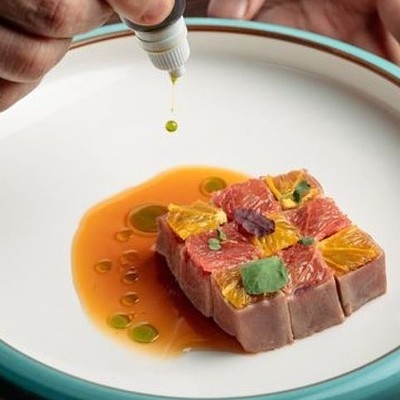Fill in the blank: Wine is to sommelier as beer is to ________.
If you said, "cicerone," you're right. You're also way ahead of the curve.
Though the word cicerone, taken from the Roman philosopher Cicero, has been used for years to denote a guide, generally at a museum, it has taken on a new meaning in the past several years thanks to the efforts of Ray Daniels, a Chicago-area brewer.
Five years ago, Daniels started the Cicerone Certification Program to provide ignorant or overwhelmed consumers who might be new to the craft beer scene with help from someone who really knows beer. It seems that the interest in craft brews has expanded so much in recent years that we now need a guide to help us navigate.
Daniels hopes that the term "Cicerone" will soon be the industry standard for people who are well versed with the nuances of beer production, flavor and service. According to the Cicerone Certification website, "The titles "Certified Cicerone®" and "Master Cicerone®" are protected certification trademarks. Only those who have passed the requisite test of knowledge and tasting skill can call themselves a Cicerone."
It's kind of a big deal. Emphasis on kind of.
Kevin Floyd, one of the owners of The Hay Merchant, requires his servers to take the Level 1 test to become a Certified Beer Server. Beyond that, Floyd says, the things you have to memorize for the Certified Cicerone and Master Cicerone tests are mostly unnecessary.
"I require all new hires to take the Level 1 as a way for me to give them a baseline before they come into training," Floyd explains. "but I'm not going to require the Level 2 test or take it myself. There are style questions that are very, very, very specific. From my perspective, the only time that kind of specific beer knowledege is required is at a competition."
The Level 1 test covers a lot of basics that any server in a quality beer bar should know, but Floyd explains that knowledge needed to pass the Level 2 or 3 tests is not something that will necessarily help anyone be a better server. Beyond that, he says, even people who judge beer competitions like the World Beer Cup use style guides as references during the judging.
"Even the judges aren't expected to have that specific knowledge," Floyd says. "So why would a beer server need to have that information?"
To see what kind of questions are on the test, I signed up for a Cicerone Certification Program account and took a practice exam. Here are the 10 questions I got:
- What role does "choker line" play in a draft system?
- Compared to a Bohemian (Czech) Pilsner, a German Pilsner will usually be:
- In which of the following beers would haze be a sign of a likely problem with the beer:
- Which if the following is most likely to help preserve the freshness and flavor of bottled beer?
- Which of the following is a off-flavor commonly associated with over-sparging?
- The clove or nutmeg flavors associated with 4-vinyl guiacol (a phenol) are typically produced by the yeast used to make which style of beer?
- English hops are often associated with which flavor attributes?
- A normal-strength beer that has been stored at room temperature for nine months would most likely exhibit what off-flavor:
- What is the volume of a standard keg?
- Hops contribute to what aspects of beer taste?
If you know the answers to all of these, good for you! I only got four of them correct. But then I'm the type of person who, when asked what kind of beer she likes, usually replies, "I just like beer."
Kyle White who used to be a sales rep for Duff Distributing here in Houston but now lives in Austin has taken the Level 2 exam and believes that it did indeed help him in the industry. He believes that the test and title could become an industry standard someday, and at the time he took the test, the company he was working for was willing to help fund it (it costs $345).
"It looks good on paper," White explains. "It was more of a this is the right time to do it kind of situation, and it was also a motivator to go back and study off-flavors and beer and food pairing concepts."
White says that he doesn't really disagree with Floyd's assertion that the Level 2 test is unnecessary for servers, but he does think it's a good motivation and opportunity for beer enthusiasts to increase their knowledge.
"I took the test with about 40 people in Texas," White says, "and most of them didn't pass. But I don't know anyone who took the test and failed who's resentful of the experience, just because of the knowledge they gained in preparing for the test."
Currently, there are only seven Master Cicerones in the United States and Canada. All of the American Cicerones are located in the Midwest and California, so if you're hoping to pick the brain of a Master Cicerone, you're going to have to leave Texas. More than 900 people have passed the test to become Certified Cicerones, though and an estimated 27,000 are Certified Beer Servers. I guarantee you we have both levels of expertise right here in Houston.
For creator Daniels though, it's less about the prestige than it is about getting the right beer into the hands of thirsty customers. Or so he says.
"By implementing the serving practices tested by the Cicerone program," Daniels writes on the site, "retailers can improve beer quality and presentation to a level that will impress and please the most knowledgeable beer consumer."
Eh. I guess I'll drink to that.





